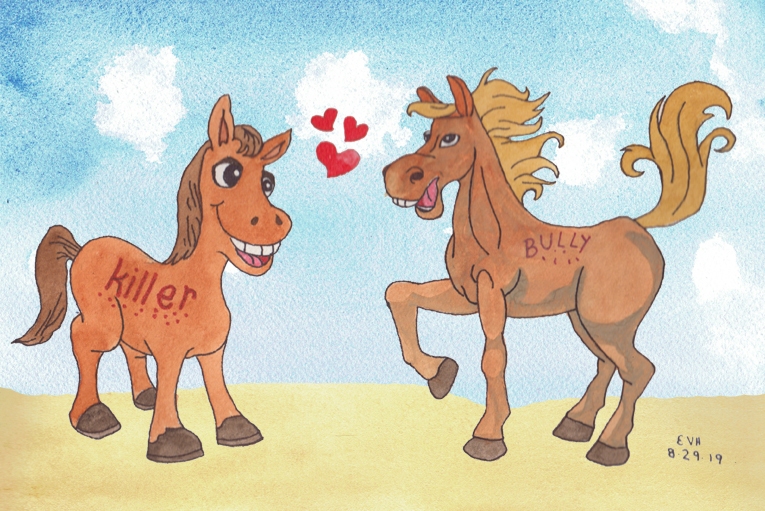
Jataka 158
Suhanu Jātaka
Strongjaw
as told by Eric Van Horn
originally translated by William Henry Denham Rouse, Cambridge University
originally edited by Professor Edward Byles Cowell, Cambridge University
I’m not sure how believable this story is. Having said that, perhaps there is some deep seeded karma from long ago that is manifesting. Judge for yourself!
“Birds of a feather.” The Master told this story while he was at Jetavana. It is about two hot-tempered monks.
It happened that there were two monks who were passionate, cruel, and violent. One was living at Jetavana and one was living in the country. Once the country monk came to Jetavana on some errand or other. The novices and young monks knew the passionate nature of this man so they took him to the cell of the other in order to see them fight. However, no sooner did they see each other than those two hot-tempered men ran into each other’s arms, hugging and caressing hands and feet and back!
The monks talked about it in the Dharma Hall. “Friend, these passionate monks are cross, cruel, and angry to everyone else. But with each other they are the best of friends, cordial and sympathetic!” The Master came in and asked what they were discussing. They told him. He said, “This, monks, is not the only time that these men, who are cross, cruel, and angry to all else, have been cordial and friendly and sympathetic to each other. It happened just so in the past.” And so saying, he told this story from the past.
Once upon a time when Brahmadatta was the King of Benares, the Bodhisatta was his advisor, a courtier who advised him on things worldly and things spiritual. Now this King was of a somewhat covetous nature, and he had a brute of a horse named “Mahāsoṇa,” or “Big Chestnut.”
Some horse-dealers came down from the north country. They brought 500 horses with them. Word was sent to the King that these horses had arrived. Now until now the Bodhisatta had always asked the dealers to fix their own price and then paid it in full. But now the King, being displeased with him, summoned another member of his court. He said to him, “Friend, ask the men to name their price. Then let loose Big Chestnut. Make him bite them, and when they are weak and wounded get the men to reduce their price.”
“Certainly,” said the man, and so he did.
The dealers indignantly told the Bodhisatta what this horse had done.
“Don’t you have a similar horse in your own city?” the Bodhisatta asked.
Yes, they said. There was one named Suhanu, which means “Strongjaw.” He was a fierce and savage brute.
“Bring him with you the next time you come,” the Bodhisatta said, and this they promised to do.
So the next time they came they brought this brute with them. The King, hearing that the horse-dealers had arrived, opened his window to look at the horses. As before, he had Chestnut let loose. The dealers, when they saw Chestnut coming, let Strongjaw loose. No sooner had the two met, then they stood still licking each other all over!

Figure: The Bully Lovebirds
The King said to the Bodhisatta, “Friend, when these two rogue horses are with other horses, they are fierce, wild, and savage. They bite them and make them ill. But with each other, there they stand, licking one another all over the body! How can this be?”
“The reason is,” the Bodhisatta said, “that they are not different. They are alike in nature and character.” And he repeated this couple of verses:
“Birds of a feather flock together. Chestnut and Strongjaw both agree
In scope and aim both are the same; there is no difference I can see.”
“Both are savage and vicious. Both always bite their tether.
So both are bad, and vice with vice, must even agree together.”
Then the Bodhisatta went on to warn the King against being greedy and spoiling other men’s goods. The he fixed the value of the horses and made him pay the proper price. The dealers received their due value and went away well satisfied. And the King, abiding by the Bodhisatta’s warning, at last passed away to fare according to his karma.
When the Master ended this discourse, he identified the birth: “The bad monks were these two horses. Ānanda was the King, and I was the wise counselor.”
